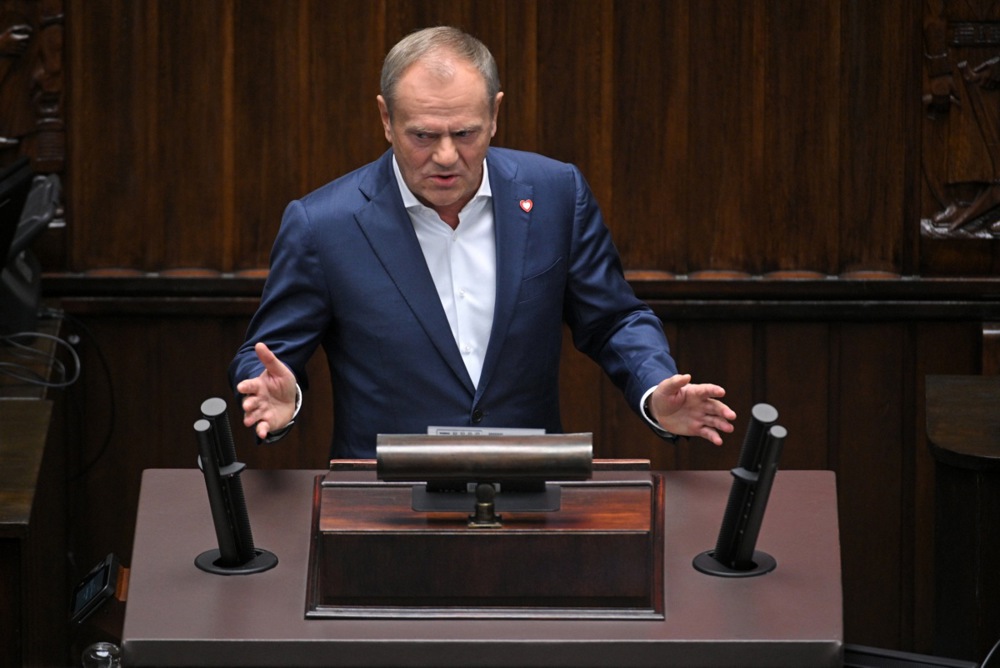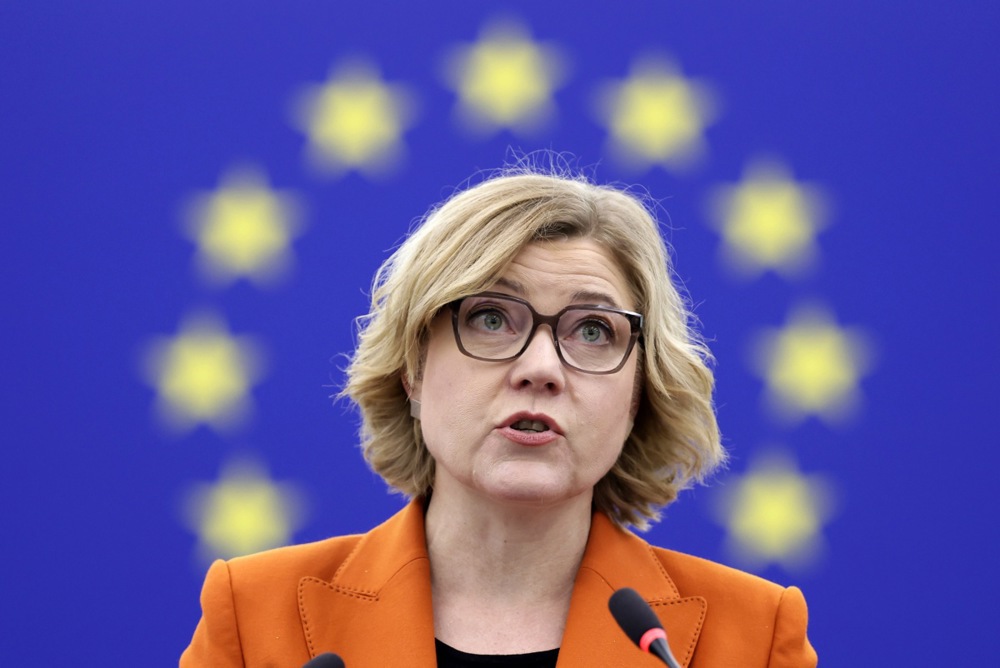In May and June 2025, Poland will face a decisive moment in its modern history. The presidential election will either restore the rule of law or allow the current left-liberal government under Donald Tusk to complete its drive to seize control over all state institutions. This is not just a domestic issue—it is a test for the free world.
It is a personal issue, too. I am a former deputy minister of justice in the conservative PiS government and a member of the Polish Parliament. I am also a politician who has had to flee to Hungary for political asylum after false charges were brought against me – as against many conservatives — by politicised prosecutors and judges acting under Prime Minister Tusk.
This is why the world must look at what is happening in Poland. When my country, one of the United States’ key allies in Europe, becomes a laboratory for political repression orchestrated by the European establishment – yes, the European Commission approves of every move Tusk is making — not only its sovereignty is at stake. Just like the relentless pressure on Hungary or the judicial manipulations in France and Romania, the attack on Poland once again exposes the current European elites as enemies of freedom and the very values on which Western civilisation was built. This is exactly what Senator J.D. Vance referred to in his speech in Munich.
The Constitutional Role of the President – a brake on political monopoly
Unlike the US presidential system, the Polish president does not form the government. However, he holds key powers. His legislative veto cannot be overridden by the Tusk coalition, which lacks the necessary three-fifths majority in the Sejm. The government needs the president’s approval to appoint key officials including the governor of the central bank, the national prosecutor, the president of the constitutional court, or top military commanders. In short, the president is the last safeguard against one-party control of the state. This is especially important given that Tusk’s left-of-centre administration is not only violating laws but committing criminal abuses.
It is therefore no wonder that the Tusk government is doing everything it can to ensure victory for their candidate, Rafał Trzaskowski. His main opponent is Karol Nawrocki, a respected historian supported by the largest opposition party, my party, the conservative Law and Justice (PiS). A passionate athlete and boxer, he is the right man for tough times to many.
How Tusk came to power – and what he did next
Tusk, who served as prime minister from 2007 to 2014, returned to power in 2023 following eight years of conservative rule. He won with the help of endorsements from EU commissioners and the German media. After taking office, the Tusk coalition launched an unprecedented crackdown on the opposition that included the illegal takeover of public media and the unlawful subjugation of the judiciary and the public prosecutor office.
Police arrested two right-wing MPs, Mariusz Kamiński and Maciej Wąsik, in January 2024 inside the Presidential Palace—violating their parliamentary immunity. There have been credible reports of torture against a Catholic priest, Michał Olszewski, and against two former ministry of justice officials pressured to testify against conservative politicians.
For my part, I was the target of a media smear campaign orchestrated by the government. Facing trumped-up criminal charges and systematic breaches of criminal procedure including my detention in violation of international law, I applied for asylum in Hungary to continue the fight against Tusk’s lawlessness. With the Tusk government’s weaponisation of law enforcement and the judiciary against political opponents, Poland resembles Belarus more than any EU member state.
Notably, the activities of the prosecutor’s office are synchronised with the presidential election calendar. The parliamentary committee of inquiry (already declared unconstitutional by the constitutional court) tried to summon and arrest former Justice Minister Zbigniew Ziobro. Former defence minister and parliamentary leader Mariusz Błaszczak was charged in March 2025 for revealing the first Tusk administration’s defence strategy, a startling strategy which called for the surrender of Poland’s eastern half in the event of Russian aggression.
The political persecution has had tragic consequences. Barbara Skrzypek, former chief of staff to PiS leader Jarosław Kaczyński, died of a massive heart attack just two days after being interrogated by the prosecutor. She had been subpoenaed and denied the presence of her lawyer in a closed case reopened purely to attack Kaczyński, the leader of PiS. The pattern of behaviour in Polish courts and by prosecution is eerily similar to the recent treatment of Marine Le Pen in France, who was excluded from the 2027 presidential race based on a preliminary verdict and flimsy accusations.
The attack on the largest Opposition party
Yet the most significant and repressive measures are taking place behind closed doors. In August and November 2024, the National Electoral Commission—dominated by government loyalists—blocked roughly 80 per cent of the public funding due to PiS, Poland’s largest opposition party (in Poland political parties are financed by the state).
The government refused to comply with a supreme court order to release the funds—claiming it does not recognise rulings issued by judges appointed during conservative rule. The Brussels establishment stepped in to help. On April 10, 2025, the Advocate General of the EU Court of Justice ruled (which typically signals the final judgment) that the government was not required to recognise verdicts from PiS-appointed judges. The EU jurists ruling on the matter exceeded their legal remit.
The result: Tusk’s Civic Platform is able to fully finance its presidential campaign with state resources, while PiS not only lacks the funds for day-to-day operations but also the means to run a campaign.
Now, under the pretext of combating “disinformation” and “Russian propaganda,” Tusk’s government is preparing legislation modelled on the EU’s Digital Services Act (DSA), which in practice enables censorship of social media.
Tusk’s regime not only governs undemocratically but is also aligning itself with the German interests. This is a reversal of pro-American policies pursued by PiS with Poland, one of America’s most important European allies and a vital pillar of NATO’s eastern flank, strengthened by the expansion of the military and defence spending reaching almost 5 per cent of GDP. But to remain a credible ally, Poland must remain a constitutional democracy. When a government uses the power of the state to eliminate opposition, defunds political parties, censors the Internet, and threatens to invalidate election results, democracy is not the word that describes such a system.
Marcin Romanowski is a former Deputy Minister of Justice in PiS government and a member of the Polish Parliament.





